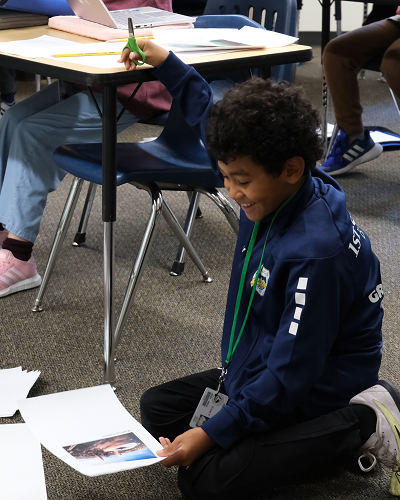National Citizenship Lesson from a Civil Rights Icon

Rita Bender, who is a civil rights activist and Seattle lawyer, spoke to Upper School students in a gym assembly on Wednesday about the importance of national citizenship.
Her presentation focused on how our nation’s history has been built on the unequal representation, especially that of African Americans. First during slavery, and later in the passing of oppressive laws through state’s rights.
Bender says that begins with the right to participate in governance. “The demography of America is changing,” says Bender. “In a few years, minorities will be the new majority, yet this new majority is disproportionately poor, undereducated, and, too often, deliberately excluded from meaningful participation in the political process.”
Citing the constitution, and the 10th and 14th Amendments, Bender believes that starts with voter rights and education. Bender and her husband Bill work extensively in the South where those two opportunities are a challenge for minorities. “We cannot have a successful society unless what’s to become the new majority in this country receives an education every bit as wonderful as the education you receive today, right here, in this school,” says Bill Bender. “It’s not happening, and our message is ‘We need to share…all of us.’"
The Benders’ took questions from the students after their presentation, and, when a student asked about the best ways to get involved, Rita Bender turned the question back to the students. Their answers included writing to government representatives, attending town hall meetings, registering and voting when they turn 18, being informed and educated, and getting involved in organizations and causes they feel advocate positions. She added, “Get into an argument with someone who disagrees with you because, if they say something that strikes you as outrageous, find a reasonably polite way to ask ‘What do you base that on?’ Occasionally, you can move someone a little bit.”
In our current political climate, the question was asked, “Are you optimistic about the future?” at which Rita laughs and says, “There’s an old song that goes, ‘Freedom is a constant struggle.’ That’s my best answer.”



